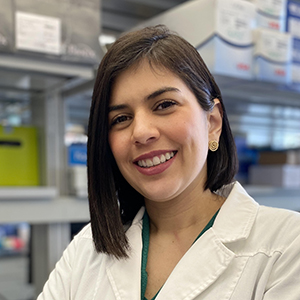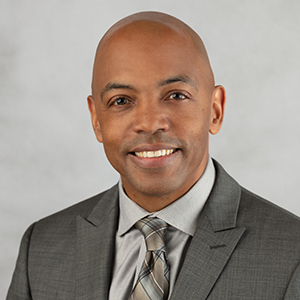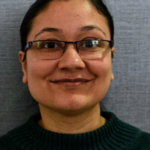Participating researchers focus on overcoming biological and social factors that contribute to poor cancer outcomes among racial and ethnic minorities addressing inequities locally to inform solutions applicable on a national level.
The I-CHER Center supports six targeted projects designed to strengthen interdisciplinary science and create solutions to address the unmet needs of patients.
Research Scholar Grants
Latinas Lideres En Salud (LALISA)
ELLAS/The Resurrection Project and other stakeholders will compare the effects of two community navigation models on improving the uptake of genetic services and risk-based breast healthcare among Latinas who have elevated biological breast cancer risk and social risks due to structural factors.
TestMiGenes
In the TestMiGenes study, our research aims to compare 2 models of cancer genetics service in primary care to improve the uptake of genetic testing among patients at risk for having a hereditary cancer syndrome (e.g., Lynch syndrome or a BRCA mutation). We will also examine the feasibility, acceptability, and sustainability of each care model to help inform the development of best practices for primary care integration.
Creation of a Culturally Sensitive Narrative Intervention to Promote Equity in Clinical Trials
In the FOR ME (Fostering Opportunities in Research through Messaging and Education) Study a team of researchers and local community advocacy groups, including Sisters Working It Out and Equal Hope, will develop a multimedia decision aid for Black women diagnosed with breast cancer to increase awareness about clinical trial participation.
Optimizing Colorectal Cancer Risk Assessment From Family History to Promote Targeted Screening in an Urban Underserved Population
Keith Naylor, MD seeks to improve cancer risk assessment and colorectal cancer screening among underserved populations through enhanced family history documentation.
A Community Engagement Approach to Improving Communication with Black Men About Oral and Pharyngeal Cancers
Patrick D. Smith, DMD, MPH will collaborate with Project Brotherhood, a community-based organization with expertise in Black men’s health, to develop a tool that will assist dental providers in engaging Black men in discussions about oral and pharyngeal cancer prevention and treatment.
Post-doctoral Fellowship Grant
Racial/Ethnic variation in ACKR1 on breast cancer progression & treatment

Chinwe Ewenighi-Amankwah, PhD, aims to understand molecular determinants of health, including the therapeutic implications of ACKR1 mutations.
Pilot Award Grantees
Assessment of guideline concordant cervical cancer screening in Chicago using electronic health record data from a large research network (CAPriCORN)
Prevention and Screening of Cancer in the Emergency Department Patient Population (PaCE)
Developing Food is Medicine for Breast Cancer Survivors: A Lifestyle Modification for Black Breast Cancer Survivors with Cardiovascular Risk
Surface-engineered NK/Trastuzumab Cells as a Targeted Immunotherapy for HER2-low Breast Cancer

Citing and acknowledging I-CHER
You should cite I-CHER if you received services for your research project including free or subsidized services, such as:
- Pilot awards
- Education and training programs
You can CHOOSE to cite I-CHER if you received infrastructure support for your research project:
- Coordination and support from I-CHER faculty or staff (e.g., organizing meetings, project facilitation & planning)
- Other technical assistance for only one aspect of the research played an important role
Please use language as such: Funding and support of [this project and/or opportunity] was made possible through I-CHER, the University of Illinois Cancer Center, and the American Cancer Society.








